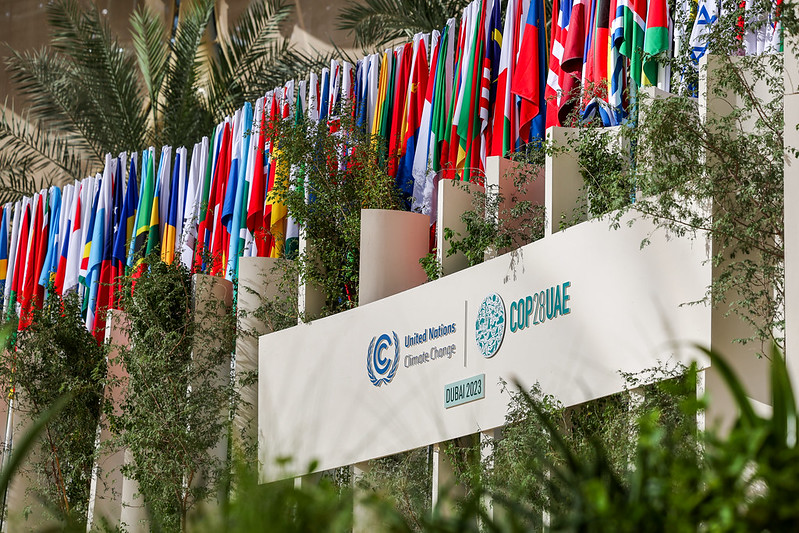
Among oil deals and fights over footnotes – why the COPs still matter
Today, the 28th Conference of the Parties (COP28) of the United Nations Framework Convention on Climate Change (UNFCCC) – otherwise known as the international climate change negotiations – kicks off in Dubai. Pre-negotiations have been tense, and the days running up to the conference have been shrouded in controversy.
Briefing documents have been leaked, which suggest that the COP Presidency from the United Arab Emirates planned to use bilateral discussion in advance of the negotiations to further national oil and gas interests. And intersessional work on setting up a fund on loss and damage just narrowly resulted in agreement, with discussions over a potential footnote nearly derailing discussions in literally the final minutes of negotiating time.
It is precisely these controversies and tensions that lead many commentators and activists to question the purpose of the annual COP meetings. The struggles with the bureaucratic process and the conflicting interests represented are often jarring and frustrating when set against the urgency of climate change and the scale of the action needed. Yet, people from all over the world continue to come together every year and work towards agreement on how we all live in a changing climate.
COPs provide a venue for vital ongoing global dialogue on climate change
So why do these meetings still happen and why do we still give them so much attention? Much of the critique of the COPs is based on misunderstandings of what the COP is and as such false expectations of what it should be able to achieve. The COP is the supreme decision-making body of the UNFCCC and takes place annually unless the State Parties to the Convention decide otherwise. The COP is responsible for reviewing the implementation of the UNFCCC and any other legal instruments that the COP has adopted. These meetings therefore have an ongoing role, crucially even if goals to limit global temperatures and support people having to adapt to climate impacts are being met.
An expectation that a particular COP will bring the big breakthrough on climate change that will solve all of the problems of climate change is wholly unrealistic. Yet at the COPs, negotiations from all over the world come together and, in a process based on consensus, work on the world’s climate change game plan.
The concentrated annual attention being paid to climate change at the COPs therefore gives me optimism, rather than making me pessimistic about the state of the climate, because as long as we are talking, ambition can still be increased and steps towards a better future can be taken. How should this ever be attained without a forum for crucial global dialogue?
Photo credit: COP28/Mahmoud Khaled

Insight by
Sarah Nash
wissenschaftliche Mitarbeiterin

